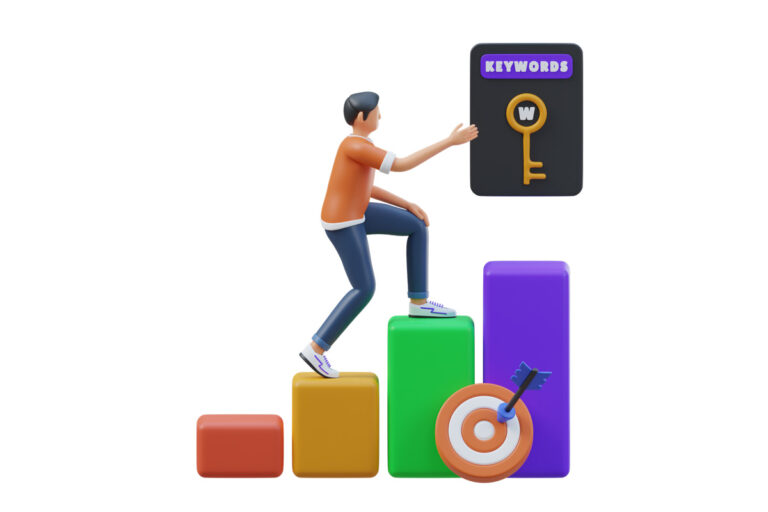The use of Artificial Intelligence (AI) in the e-commerce industry has completely changed how businesses go about their business and interact with customers. Nonetheless, it also presents a distinctive set of ethical dilemmas that must be brought to light. In this blog post we are going to reflect on AI implications for e-commerce and investigate how exactly it may influence our communities, beliefs and lifestyles. We will check out the potential effects on customer behavior, market rivalry as well as fraud detection. Ethical points such as data protection level, secrecy guarantee or information security will get covered too so there is no need to worry! Finally we’ll examine alternative ways applying AI ethically can lead us towards remarkable outcomes all across the world – let’s explore The Ethical Dilemmas of AI in E-Commerce: An investigation into the moral issues posed by utilizing artificial intelligence within online retail sector!
Understanding AI Ethics in E-commerce
Navigating the ethical dilemmas posed by AI in E-commerce can be a daunting task. Companies have to consider data privacy concerns, potential bias in algorithms and decision-making – all of which make understanding the implications of artificial intelligence (AI) quite challenging. However, it’s essential that companies include considering ethics as part of their e-commerce strategy – this will ensure they take ethical behavior into account when designing and introducing AI technology.
Data privacy is an especially important element when discussing AI ethics. As more businesses are attempting to make use of the data obtained from customers as well as other sources for optimizing operations and giving enhanced customer experiences, it is essential that they take preventive steps in order to secure the personal information gathered. Companies should have definite policies about how this collected data will be used, kept safe, shared with third parties etc., along with robust security protocols so as to bar any unauthorized access or ill-usage of consumer details. Furthermore, firms must give consumers a choice where they can opt out or restrict their individual info being used if desired by them. What measures would you deem necessary when processing client’s information?
A major issue to consider when discussing AI ethics in e-commerce is algorithmic bias. This happens when algorithms treat certain groups better than others, either due to intentional programming decisions of humans or concealed biases within the code itself. Such discrimination could be based on gender identity, skin color, and even social class – potentially leading to unfair circumstances like exclusion from opportunities available only through online platforms such as job postings or product propositions. How can we make sure that this type of particular behavior doesn’t exist?
To battle this predicament, companies must persistently investigate their systems for prospective biases, compile protocols concerning application rules and guarantee lucidity about judgments constructed by their algorithms.
Plus another factor associated with perceiving AI principles comprises of providing consumers with significant choices above mechanized judgement making procedures. Companies have to make sure that customers recognize accurately what types of mechanical decisions are being made by their regimes – and bestow them opportunities around retreating from — so that people don’t feel like machinery is managing their lives without having any control over it. By granting purchasers preferences on how they come in contact with computerised systems, businesses can aid beyond doubt that humans continue at the nucleus of all conclusions affiliated to digital market places operations
Exploring the Role of AI in E-commerce
AI is quickly becoming a major force to be reckoned with in the e-commerce space. But, its use also comes with some ethical dilemmas that need to be addressed before it is used on a larger scale. The biggest issue posed from using AI in this setting centers around the potential for human labor being replaced by automated processes; meaning fewer jobs and lower wages for those employed within this industry. Not only could there potentially be economic implications but data privacy and security are of huge concern when talking about anything involving artificial intelligence – especially where financial transactions like buying goods online come into play!
There is a risk for customers that their personal data can be exposed or used without them knowing when it comes to AI in e-commerce. Furthermore, companies are collecting considerable amounts of consumer information through online interactions like browsing habits and purchase history. This collected customer data could then be utilized by the company to create personalized marketing campaigns or manipulate prices based on individual profiles and past buying experiences – which raises an ethical dilemma about protecting people’s privacy while using technology for business reasons. It begs the question: How far should businesses go with gathering customer information before crossing lines?
This brings up some serious doubts whether it is ethical to use such marketing practices or companies should clearly tell how the data collected from their websites are being used. AI has also caused controversial moral discussions about its effects on popular social media networks like Facebook and Twitter. Through algorithms made for providing people with material based on what they find entertaining, these platforms have been able to skyrocket engagement rates – but all this happening at a price?
With so much power over what content users see on these platforms, we have to remember that with great responsibility comes a need for proper oversight. Without it, companies may be able to control public opinion by targeting groups with biased information or campaigns designed specifically to influence their beliefs without them even knowing.
AI also raises the question: who is responsible if something goes wrong? Even more pressing are situations when mistakes made through an algorithm can lead to life-altering consequences like loan applications and job placements being turned down. As businesses shift from humans labor towards automation processes , clear guidelines should be established in order determine accountability for any errors caused by algorithms .
Identifying Ethical Dilemmas in AI Application
Speaking of AI applications in the e-commerce industry, ethical dilemmas are a huge deal. The decisions made by using these algorithms can have an immense impact on customers and businesses alike; hence it is essential for companies to consider all possible ethics issues before introducing any type of AI technology into their operations.
One primary example would be data privacy and security – something which has become even more relevant with advanced analytics techniques used in digital marketing gaining traction lately. What measures should organizations take to protect consumer data? How do they ensure that this information does not fall into the wrong hands? These questions make sure that companies must prioritize customer safety when integrating new technologies like artificial intelligence into their systems.
Customers want to feel confident that their personal information is safe and secure when they use an online platform or purchase products from a website. After all, cyberattacks are growing in numbers every single day; so it’s essential for businesses to work hard on keeping the customer data as secure as possible. AI algorithms can help make this process easier but companies must also take extra measures by adhering to laws and regulations regarding data protection – failure to understand those rules could lead not only fines, but worse legal repercussions if found guilty of noncompliance. It’s never something you’d like your business associated with; making sure customer trust won’t be compromised should always be at top of one’s priorities list!
When it comes to customer experience, an ethical dilemma arises when using AI in e-commerce: how much autonomy should customers have while choosing products? Some companies may go for automated decision making that follows a set of parameters like price or features. On the other hand, some businesses might want their buyers to pick whatever product suits them best without any algorithm pushing them one way or another. This leaves us with the question – what kind of influence is ethically acceptable and who exactly should be responsible for making these decisions?
When it comes to making the choice between a more ethically sound option and personal company policies, this ultimately boils down to what companies think is best for their customers. Moreover, there’s an issue regarding transparency with AI usage in e-commerce platforms; how much insight should consumers have into the algorithm? Each business has its own policy but generally speaking users need to be conscious of when their personal data is being used by these systems – even if that means having some technical information shared which they wouldn’t fully understand anyway! Doing this would go a long way towards showing people that businesses are handling their info responsibly while also keeping things transparent during the process. But do we really know who owns our data or where exactly it traveled through until reaching our screen? These questions remain unanswered.
Implications of E-commerce Impact on Ethics
The emergence of e-commerce has altered significantly how we purchase things. From having more choices to accessing products with ease and even better customer service, the development of technology brings up ethical matters that need addressing. It is crucial to fathom what implications AI can have on our moral standards as well as decision making capability? How will artificial intelligence affect us ethically speaking when it comes to shopping online? These questions must be answered in order for us comprehend the impact AI would have on e-commerce.
As Artificial Intelligence penetrates every corner of our lives, it’s necessary to think about its possible consequences for human ethics. Businesses could employ algorithms and machine learning in order to regulate consumer behavior or concentrate on certain people depending on their information. This can create ethical issues such as privacy problems, prejudice or even control for financial profit. Moreover, AI might be used by businesses like a tool for observation which would influence customer rights and liberty concerning their own choices – should we allow companies take away our personal freedom completely?
Moreover, there is a worry about how AI could replace human labor or constrain job prospects because of its accuracy and effectiveness when compared to the manual processes humans do. This might lead to more economic disparity between those who can buy advanced tech versus those without – opening up an ethical conundrum with regard to fairness in accessibility and opportunity for all people regardless their socioeconomic standing or origin. Would this be unfair? Could we actually make it equitable by ensuring everyone has access?
When it comes to AI’s presence in e-commerce, there are some potential ethical issues that must be addressed. For instance, automated decision making processes may exploit customers by not taking into account cultural norms or individual preferences when deciding on pricing and product availability. That’s why companies using AI systems in this domain should comply with legal regulations as well as display transparency – especially since they process sensitive customer data.
Responsible practices need to be implemented while introducing artificial intelligence solutions for businesses operations: clear guidelines regarding data collection, storage and usage; security measures taken against possible breaches; giving customers a say over what information is provided etcetera By doing all of the above mentioned things , enterprises can protect themselves from any judicial troubles but more importantly build trust amongst consumers while adhering ethically sound principles which could provide guidance when developing new use cases within e-commerce industry .
Highlighting Case Studies on Ethical Dilemmas
Exploring the use of Artificial Intelligence (AI) in e-commerce brings about a unique set of moral dilemmas. On one hand, AI can make processes smoother and automated tasks easier while also providing users with more personalised experiences – but it’s also possible for privacy to be violated, decisions being made unfairly or labor practices not being observed correctly.
By looking at case studies we gain insight into these ethical problems from different angles; this lets us comprehend how small choices by an individual group may have big impacts on those around them. It opens our eyes to see that although modern technology like AI is incredibly useful there are still some issues which need attention and care when using it in certain settings. Have you ever thought about what kind of implications your decisions could have?
Studying from the experiences of different companies can help us to handle potential ethical problems better in future. Take for instance the case with Amazon when they used AI-based facial recognition software to spot shoplifters at their stores. This incident brought up concerns regarding privacy rights for those who were identified as suspects yet weren’t charged with any crime. It is through cases like this that we learn how important it is considering human right implications before using a technology such as facial recognition or other forms of AI surveillance tooling.
As AI is increasingly used in e-commerce settings, there are a number of ethical dilemmas that arise. Take the example of Uber which employed an algorithm to determine driver pay rates based on performance rather than seniority or experience level – this led to grievances about unequal wages being paid among those with comparable qualifications and expertise levels. This highlighed how crucial transparency was when it came down around algorithms – individuals affected by their use needed clarity into what factors were taking into account during decisions made via them.
These two examples just skim the surface as far as ethically challenging scenarios presented by using Artificial Intelligence go; they point towards data collection methods within these situations and algorithmic decision making processes that may be unfairly predetermined due to existing power structures inside society—all issues we must consider if our use of technology strives for equity across social divides?
Analyzing the Pros and Cons of AI in E-commerce
The utilization of Artificial Intelligence (AI) in e-commerce has skyrocketed due to the emergence of big data and machine learning. AI can help automate procedures, enhance customer service, and furnish insights that may present a business with more success. Nonetheless, it merits examining the ethical dilemmas presented by utilizing AI in this arena carefully before making any crucial decisions about how one ought to apply it into their operations.
Amongst its many advantages is the fact that using AI in e-commerce could increase productivity while at same time cutting down expenses for businesses. So not only do you stand to gain an advantage over your competitors but also save money on operational costs – what’s there not love?!
Machine learning algorithms are created to automate tasks such as product recommendations, customer segmentation, inventory management, pricing optimization and fraud detection; things which would normally require employees’ manual input or shell out for pricey third-party services. This means improved efficiency and cost savings if businesses choose to invest in these technologies. Furthermore AI lets establishments gain a better understanding of customers’ preferences – aiding them in creating marketing plans that yield more sales conversions rates! How much money can be saved by leveraging AI? Are there any dangers associated with using this technology? It’s important to consider all aspects before investing your cash into automation solutions like machine learning.
Then again, there are also some potential drawbacks that come with using AI in e-commerce. Questions about privacy encroachments or job loss due to automation replacing human labor roles within organizations arise. Automated systems often have the ability to obtain personal data from customers without their clear authorization – creating uneasiness over infringements of user’s rights and misuse of this confidential information by companies trying hard for an edge on other businesses through unscrupulous practices like price control or promotional efforts based off individual info without customer approval.
What’s more, automation has the potential to replace jobs within organizations – leaving employees feeling unwanted instead of empowered. Consequently, when it comes to using Artificial Intelligence (AI) technology in e-commerce businesses have to be aware and considerate of all ethical implications before making a decision on its implementation. Companies must think through both sides carefully: the advantages that automated systems can bring but also any drawbacks they may pose – developing policies around AI use which comply with applicable laws while still reaching their objectives. All this begs the question – do we really want robots taking charge?
Mitigating Ethical Issues with Responsible AI Use
Using AI in e-commerce has created a whole bunch of ethical dilemmas. As the technology is further developing, more questions about potential moral issues arise that must be answered. Businesses need to comprehend and value the consequences their decisions regarding AI might have on customers, workers, as well as society overall. Even if it’s impossible to get rid of all risks linked with using AI in online shopping, companies can take steps so that their systems are working according to ethics regulations. But how far should they go? And where do we draw the line between acceptable or unacceptable use of this powerful tool?
A good way to avoid any ethical issues is for businesses to utilize technology that’s both transparent and accountable. This entails designing algorithms which can explain why certain decisions were taken, or giving customers and staff access so they can view what data was used in the decision-making process. These steps will help lessen bias by making sure people comprehend how choices were established; thus allowing them to be effectively managed or modified if necessary. In this case, such measures would not only ensure fairness but also provide assurance from those who are affected by it since they’re able to check through a clear explanation of every step of the required process.
E-commerce businesses need to think carefully about how they ensure customer privacy and maintain security when using artificial intelligence. With cybercrime on the rise, companies must take steps like encrypting personal data stored online or regularly updating software with security patches to protect against malicious actors accessing confidential information. It is also important for organisations that operate within the e-commerce industry have strong policies in place surrounding responsible AI usage before integrating new technologies into their operations; this should include guidelines on ethically utilizing these solutions without harming customers, staff members or society as a whole plus who takes responsibility if there are any errors caused by automated decision making processes going awry. Additionally, firms ought to look at incorporating necessary checks such as obtaining explicit consent from customers concerning sensitive info collection as well as introducing an audit trail system which records modifications made along with those approving them – all of which comply with GDPR regulations regarding individual rights preservation while dealing with persons’ details over the internet. How can we make sure our technological advancements don’t come at someone else’s cost?
Future Predictions: The Evolving Landscape of E-commerce AI
Artificial Intelligence is becoming increasingly popular in the e-commerce world, to such an extent that it could be considered indispensable for running a successful online business. AI can automate tasks, generate data-driven insights, personalize customers’ experiences and make processes more efficient – all of which has caused a shift in how e-commerce works. It’s obvious that AI will continue having major influences on the future of this sector but with these changes come new moral dilemmas both from businesses’ perspectives and consumers’. Can we find ways to retain ethical standards while still taking advantage of some great opportunities presented by Artificial Intelligence?
There are some valid ethical concerns when it comes to the use of AI in e-commerce. It has a tremendous ability to collect large amounts of private data from customers and store this information without anyone’s knowledge or permission. This allows businesses to target specific consumers with personalized ads and product recommendations based on their past transactions or browsing history – potentially leading them somewhere they wouldn’t have gone if presented all available facts up front. What does that mean for our personal rights as shoppers? Is there such thing as too much control over what we ultimately purchase? Clearly, more research is needed here before fully embracing these capabilities within the industry at large.
Moreover, there’s been a worry that malicious players could take advantage of AI systems. They might manipulate algorithms to benefit themselves while inflicting losses on other customers or businesses – leading to financial damage and even possible harm due to unethical practices like price gouging during an emergency such as the pandemic crisis we’re currently living through. It raises questions about how much control do these actors have over this technology? How far can they push it before somebody notices? Is our data secure in their hands? What safety measures are being taken by companies working with Artificial Intelligence technologies so abuses like this won’t happen again in the future ?
A major ethical issue is the potential for AI systems to be biased against certain groups because of underlying algorithms that are trained on datasets with pre-existing social biases such as gender bias. For example, women may not have equal access or representation compared to men when presenting themselves online through websites powered by AI technology. This can lead to discrimination in areas like hiring and pricing decisions since these decisions rely heavily on algorithmic predictions which don’t always factor in real world variables such as experience level and qualifications when evaluating individuals’ fits for specific roles within a business. It’s essential that ecosystems built around artificial intelligence eliminate any possibility of prejudice so everyone has an opportunity at success regardless of their background!
Best Practices to Ensure Ethical Conduct in AI Application
It’s essential to take the ethical implications of Artificial Intelligence (AI) in e-commerce seriously. AI is being used more and more for automating elements like customer service, product recommendations, delivery systems etc. in this industry. As technology advances further we need to make sure that companies are upholding an ethic standard that keeps both their customers’ interests and own interest safe while using this tech within business operations; That means there has to be some best practices followed by all these businesses if they want clean records when it comes down to using AI tech – but what exactly should those practices look like?
It is critical for companies to be candid about how they are utilizing AI in their practices so that customers can make educated choices on which products or services they want to buy from them. They must disclose any limitations and hazards affiliated with the tech being utilized, as well as present buyers with comprehensible instructions of how they can decline its application if needed. Furthermore, organizations should come up with rules specifying allowed utilization of AI along side limits regarding deployment within the business surroundings – this will provide more clarity when it comes down to employing this technology! How would you feel if these policies were not clear?
Moreover, businesses must think of introducing certain protocols to protect privacy and secure data when using AI. This helps make sure that the customer information stays safe during all parts of processing transactions connected with data. It is also vital for companies dealing with machine learning algorithms or natural language processing technologies to do regular testing on these systems in order not cause any damage unintentionally through incorrect predictions or inappropriate responses from automated conversations between customer service agents and potential buyers. Lastly, enterprises should be aware not only comply current laws concerning utilizing data but keep track about new regulations introduced related precisely to Artificial Intelligence applications within e-commerce industry so as they don’t violate legal statutes belonging thereto? What will happen if they decide otherwise?
In conclusion, the application of AI in e-commerce brings along a number of ethical dilemmas which require thorough consideration. The ramifications this could have for both the industry and users should be taken into account when leveraging these technologies. Taking these moral implications into account is an essential step to ensure that AI applications are used properly by business organizations while remaining fully compliant with all applicable standards. In short, companies need to make sure they understand how their use of Artificial Intelligence can affect everyone involved before taking any action and consider its potential dangers as well as advantages through proper discussion. It’s only through understanding the delicate balance between responsibility and progress that businesses will be empowered towards safe development within this sector!
Are you wanting to maximize sales and increase customer satisfaction for your e-commerce business? AI is the answer – it’s what will help you make smarter decisions, boost operational efficiency, and give personalized experiences that customers value. Using AI technology can get rid of mundane operations while still allowing access to actionable intelligence so that you remain ahead in competition.
If this appeals to you with regards using AI tech for your company’s benefit, then why not reach out to us today? Setting a meeting would be great; our team are experienced specialists who have tailored solutions just perfect for all kinds of needs. Don’t delay any further – contact us now and start unlocking the true power of Artificial Intelligence in aiding growth within your e-commerce business!







